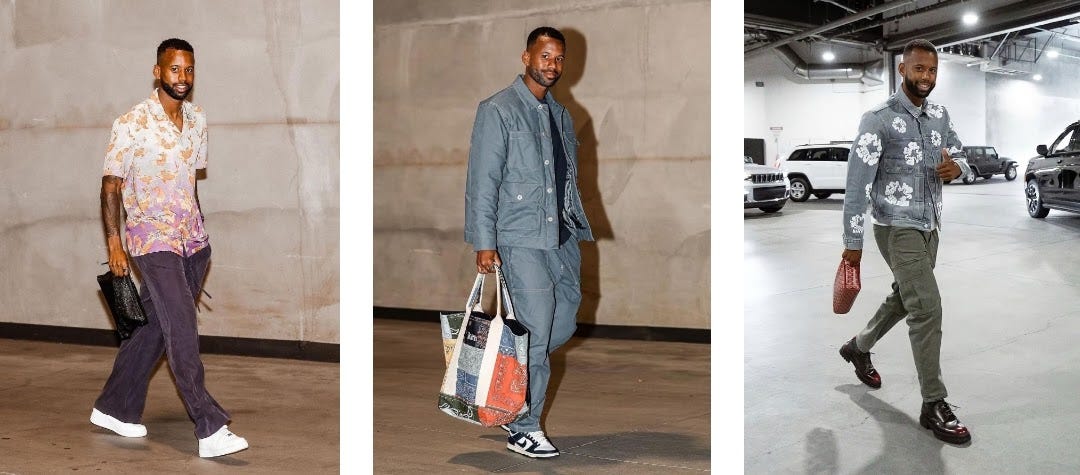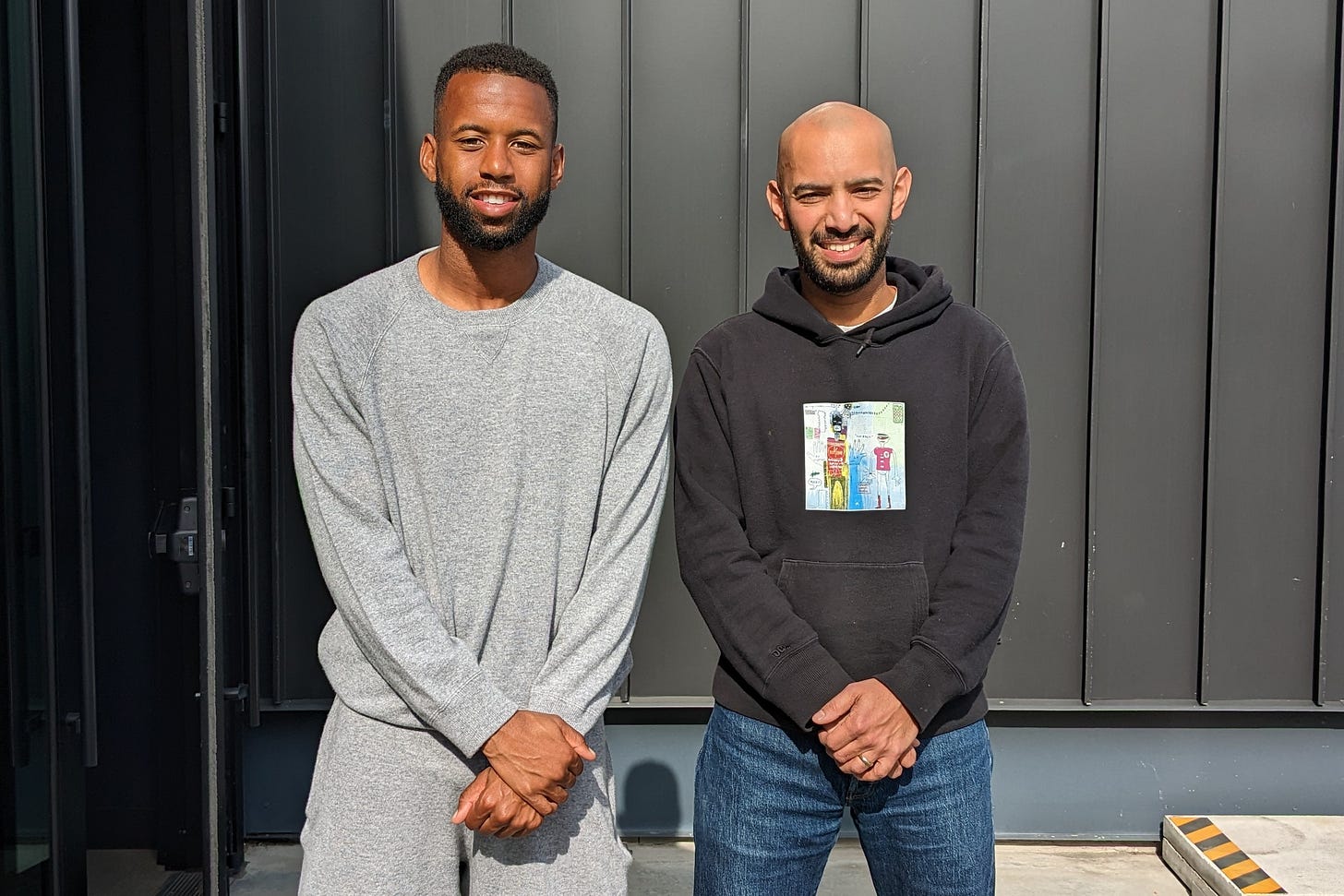Kellyn Acosta: Breaking Down Walls
Being the first Asian-American to play for the USA at a World Cup is a bold step along the trophy-laden path Kellyn Acosta is carving but he wants to be way more than just another star footballer.
In May 2022, The Players’ Tribune published a fantastic article. The title? ‘Being Japanese-American,’ by Kellyn Acosta, professional soccer player for Los Angeles Football Club and the US Men’s National Team. His words were powerful, inspiring and relatable. It was a great story. A really great story. I was jealous that I didn’t write it.
“Whoever you are, I hope you embrace your identity too… Then you will realize that there are many people just like you.”
(Kellyn Acosta, The Players’ Tribune)
Until that article ran, however, to me, Kellyn Acosta was just another guy playing football for my local team. I hadn’t even thought to read his Wikipedia until then. I had no thoughts at all on his racial background (American, Japanese, Puerto Rican), who his grandmother was (Japanese), even what city or state he was from (see next quote). He was just Kellyn Acosta.
“When I was a kid, I was heckled for standing out. I grew up in Plano, in Texas, which is predominantly white. I’m not just Asian - I’m Black as well.”
(Kellyn Acosta, The Players’ Tribune)
I’ve been a football fan for over 30 years now. We can call it soccer, that’s ok (we can discuss in the comments). I’ve had an MLS season ticket for the past eight years. I have absolutely loved following the growth of this league, and in January 2022 when Kellyn signed for LAFC, my current team, I thought it was a really good signing. A USA international midfielder known for his tenacity and workrate? Fantastic. On the most basic level, he improved the team, and by remaining in MLS, he improved the league, but Acosta proved to be more than that.
On a casual, visible level, through the club’s slick social media channels, his tunnel fits - the carefully-chosen clothes that athletes wear on the heavily-photographed stroll between the parking garage and the dressing room - are more NBA than MLS. (No offense, MLS, but you get me.)
Not content with wearing only the team kit or sponsors’ apparel, he mentions fashion being “an avenue away from soccer” for him - something he enjoys. Again, he’s elevated the league.
“Soccer? That was for girls. Some days I’d wear my soccer tracksuit at school and I’d get all these comments.”
(Kellyn Acosta, The Players’ Tribune)
In a quieter way, but just as thoughtful and expressive of how Kellyn is as a person, was his work in the community. A dive into Google shows he was in the running for a humanitarian award two years running while at Colorado Rapids for his work with Down Syndrome charities and Martin Luther King III, among others.
Last week, I had the chance to sit down and speak with Kellyn Acosta about that Players’ Tribune article but also what makes him who he is and what he wants to do.
He mentioned in that article that he might have the opportunity to play in the World Cup and be the first Asian-American to do so for the USA. So it came to be. He even captained the USMNT in their last match in January against Colombia. What a pair of headlines, but Kellyn Acosta is more than even all that.
Acosta also mentioned his feelings about being an Asian man even though people could not necessarily see (or want to see) that he was an Asian man; his feelings about having to try and convince people that he was Asian.
It reminded me about a 2021 article on the BBC about the Premier League’s first British Asian player. Jimmy Carter played for Arsenal FC in August 1992, but it’s possible that nobody - barring a handful of his colleagues - knew about Jimmy’s landmark moment until that interview a couple of years ago.
Like me, Jimmy grew up in East London, albeit 15 years earlier. He made his name at Millwall FC in the late ‘80s. He says there was “no need to disclose [his] Indian heritage” back then, let alone make a concerted effort to convince people of his lineage, but the English football terraces weren’t a massively inviting place to the non-white-working-class 30 years ago. Trust me. Society, in general, was not conducive to being bold and celebrating identity. Indeed, many can attest to it still not being so.
But since then, massive waves of social progress have been made. Kellyn speaks strongly about the intersectional nature of race, sexuality and gender in modern society, and it’s a critical point in this context.
“I feel like people are really embracing who they are now. We have to give a lot of credit to the LGBTQ community because that was a gateway for many to realize that people are comfortable in their sexuality so why can’t I be comfortable in my heritage and who I am. You’re starting to see more athletes coming out and now you’re starting to see a domino effect because people don’t have to hide it any more; they can be open. It just takes that one to break down that wall.”
There are very few openly gay professional football players and progress is evident but so, so slow. Former Leeds United defender Robbie Rogers came out in February 2013 and promptly retired from the game. Almost exactly 10 years later, Jakub Jankto, a Czech international came out as gay last month. He continues to play. There is progress, but it is slow. Indeed, 17% of people still think that pro athletes should hide their sexuality completely.
Kellyn has hopes that he can affect change on his level, at least.
“Many people are dealing with their identity. I’m Asian but I don’t look Asian. Maybe I can be the guy who breaks down that wall for others.”
We talk about how being a role model starts from a young age and that it’s even more important to him now he is a father. Acosta speaks of wanting to use his platform and voice to build something so he is someone for his son to be proud of. Playing (and winning) in the MLS and playing at the FIFA World Cup certainly helps that status.
Of course, that mentality applies to his professional development as well. Before joining LAFC, he was quite public in his desire to ply his trade in Europe. Landing in Los Angeles has proven to be no hardship, of course.
Indeed, since arriving in California, Acosta has won the CONCACAF Nations League and Gold Cup with the USA and then the MLS Western Conference, Supporters’ Shield and then the MLS Cup last November.

His World Cup appearances (including a crucial tactical foul that prevented a match-winning, tournament-ending goal from LAFC teammate Gareth Bale in the dying minutes against Wales) capped off an 18-months seemingly filled with only peaks. Joining one of the world’s top soccer leagues to test oneself against a higher caliber of player every week is a very reasonable aspiration, especially with a resume bolstered as it is.
Combining that increased status within the rapidly developing American sector of the world’s most popular sport with his understanding of intersectionality is exactly how he’s choosing to affect change in the world.
“I just established The Kellyn Acosta Foundation, so I’m trying to leave an imprint on the community. I’m new to L.A. but L.A. has really embraced me as a person so I want to give back.
“I’m doing something with Family Reach. They help families who can’t afford cancer treatments for their kids. Cancer inequity is pretty high within African-American households, so I’m using Family Reach as an outlet to help find families in Los Angeles. Me and four other colleagues around the league, [we] are raising $50k to help those families.”
With monthly themes to his philanthropy - Black History Month, followed by Women’s History Month and AANHPI Heritage Month and then the Special Olympics in the summer - there is a thoughtfulness and purpose to Kellyn Acosta’s work away from the pitch that indicates a lasting impact will come naturally.
“I like LeBron’s slogan of ‘More Than An Athlete.’ I take that into what I do. I’m more than just a soccer player. I’m a father, a son, brother, friend, human, all of those things. I think it’s good to just better everyone around you. It’s more than what you do in between these lines.”
For a kid from American Football country who so desperately wanted to fit in, Kellyn Acosta found his own way and is now leading the charge and showing everyone what it means to be a real American; a real human. He’s showing generations of people what is possible both inside and outside of those lines.
Iconic, very public moments such as the Premier League’s biggest talent at the time, Eric Cantona taking a 9-month ban for kung-fu kicking a fascist Crystal Palace fan in 1995, give the soccer fan in the margins of their society hope.
I see Kellyn Acosta’s article for The Players’ Tribune and his subsequent status as the first Asian-American to play for the USMNT at the World Cup as being similarly impactful for those who are struggling with the same issues he did.
“I hope that people can look up to me. Hopefully there will be many more of me in future World Cups.”
I hope so, too.







It was great to read someone out Kellyn’s Players Tribune piece into context - nice work my dude from a fellow LAFC Faithful & LA Gooner.